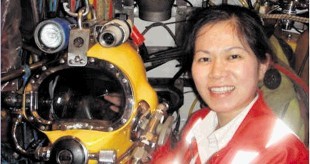
Despite the turmoil of world markets in reaction to the ongoing debt crisis in Europe, the oil and gas recruitment markets have, for the most part, remained positive and there is a shortage of suitable, experienced personnel for the North Sea.
According to the latest Hay’s Oil & Gas Quarterly Report, the most significant change in response to the global economic environment has been the length of the recruitment process, which has stretched out as employers take their time to ensure that the right candidate fits the job and that the business imperative to hire is satisfied beyond question.
Hays says that, while the feeling of unease has undoubtedly eroded confidence in hiring, there is a general perception that, specifically where the oil and gas industry is concerned, the key drivers remain in place – most notably increasing world demand for energy – and that any downturn may be brief.
The fact the oil price has come off its highs but maintained a level above the $80 bbl (for now) has caused little panic and this reflects the underlying confidence in the long-term well being of the industry. Indeed the price of Brent is comfortably back over the $100 mark.
“Reinforcing this view is the continuing strong demand for exploration staff, specifically for geologists and petro-physicists in the major oil centres around the world,” says the report.
“This activity has in turn led to strong demand for reservoir engineering and drilling staff.
“On the projects side project engineering and management continue to drive demand, as does the need for good project controls staff.”
Geographically, it is Asia-Pacific that has led the way lately with many projects coming to fruition, so putting pressure on the human capital market.
And people are becoming increasingly mobile; switching countries is happening more often.
The two big importers of skills in the quarter were the Asian markets and South America.
“Skill shortages have started to bite in a number of areas and this has seen a general increase in poaching by companies and competitors from one another, eager to employ locally-based staff,” says the report.
“Where this is occurring between clients and suppliers it is causing some ill feeling. However, there appears to be very little done to actively counter this and there is a certain resignation that this trend is to be expected.
“One way in which companies are seeking to protect their human capital is in a general shift away from contractors towards permanent staff. This is often done with a view to gaining some buy-in from the workforce and trying to reduce the attrition rate, as well as the wage bill.
“Clearly this is only done where there is some confidence that the buoyant market will continue, so it is another vote of confidence that we will not see any fall off in activity just yet.”
Homing in on the North Sea, Hays reports a tight market with demand for experienced staff growing.
“Add to this the support that UK-based skills lend to global projects, and it is no surprise that demand for experienced staff continues to grow.”
Hays reports that the usual demographic issues remain prevalent with many employers looking to surrounding industries for support.
And those with business-critical projects are paying their people more in a bid to keep hold of them.
“Employees continue to vote with their feet and are targeting companies with the most attractive projects, rates and career paths. The role of digital media and PR in this trend is not to be underestimated.”
Hays notes that two key themes have emerged in the North Sea over the last two quarters. The first is the heavy reliance on contractors for the bulk of the workforce. The second is diversity and inclusion.
It is expected that they will remain strong themes throughout the remainder of 2012 and into 2013.
Also, in April this year, there were significant changes made to the UK visa system for skilled workers.
Hays: “The market is now starting to see the impact of this change, which has prompted substantial changes in how recruitment teams operate. This is most notable when recruiting highly specialist candidates where the skills pool is truly global. Companies unable to sponsor will find themselves in an even more competitive market.
“The UK continues to see strong demand across the majority of disciplines. Geosciences and subsurface disciplines remain in particularly high demand as do specialist design skills utilised throughout the FEED stage.
Three specific skills are most sought after: exploration geophysicists, subsea installation engineers and offshore structural engineers with jackets experience.
Recommended for you
